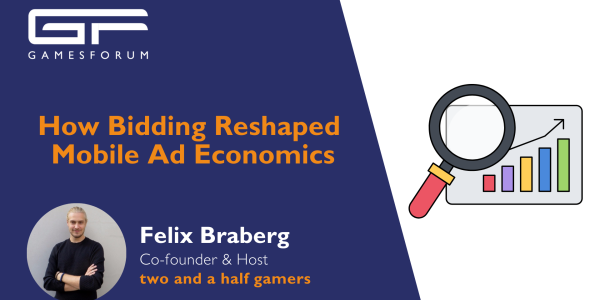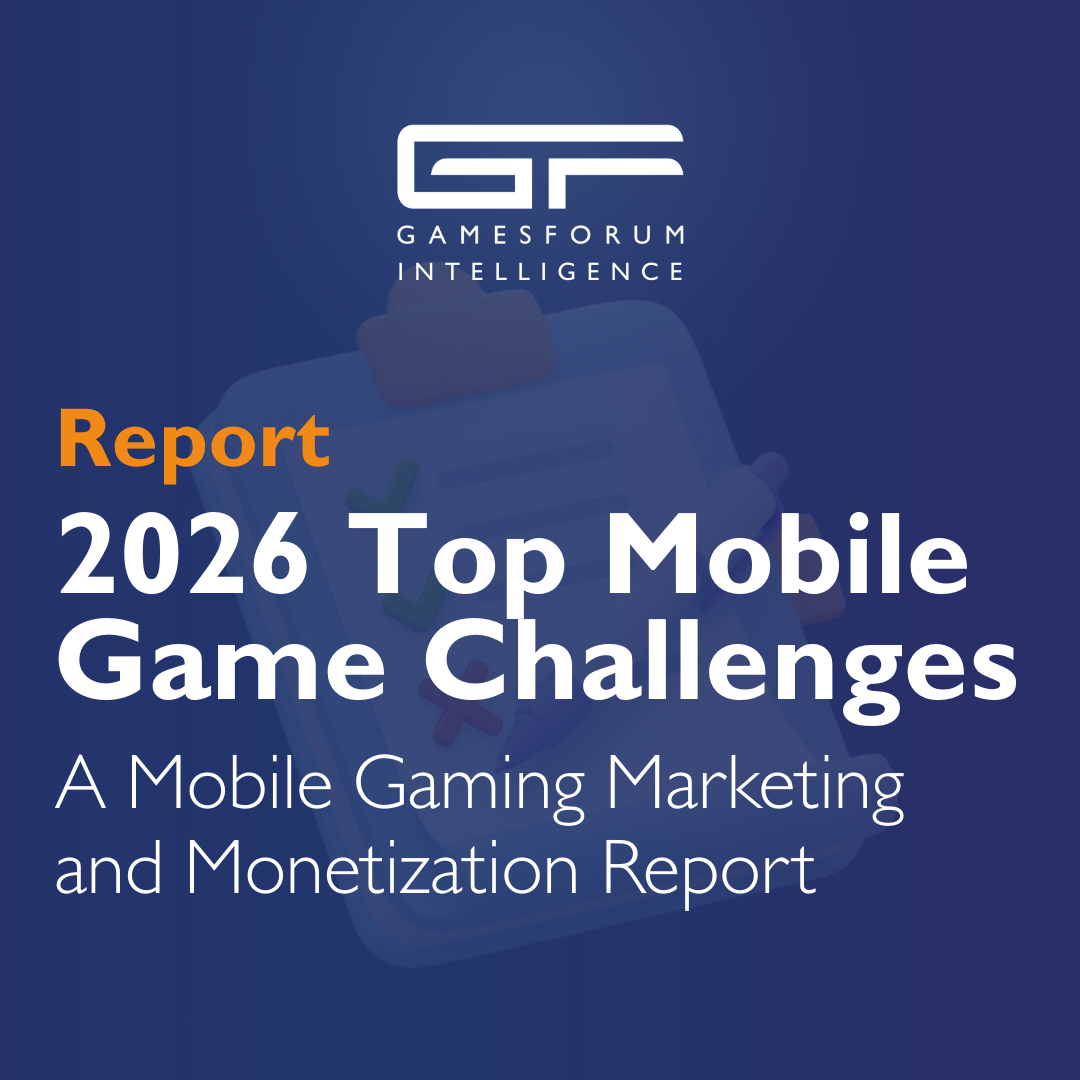Gamesforum Meets: Ofir Meir

Thanks for joining me, Ofir! Can you briefly introduce yourself?
Thank you for having me! I'm Ofir, and I’m currently leading Bright SDK, where we're focused on providing unique and effective monetization solutions that respect both the player experience and the developer's creative vision.
Talk to us about your career journey so far.
My career journey has always been driven by a passion for business development and a strong desire to connect people in meaningful ways. I started in the high-tech industry, where I had the privilege of managing partnership teams for a leading cybersecurity company. This role allowed me to deepen my expertise in building strategic alliances and fostering relationships that drove significant business growth. It was during this time that I truly understood the power of collaboration and how it can be a catalyst for innovation and success.
My transition to Bright SDK was a natural progression, as it allowed me to bring my experience in partnership management into the dynamic world of application publishing, and gaming in particular. At Bright SDK, I lead efforts to develop innovative monetization strategies that not only maximize revenue but also enhance the player experience. My focus remains on creating value through strong, mutually beneficial partnerships. It’s incredibly rewarding to work at the intersection of technology, creativity, and business, where I can continue to connect people and ideas to drive success in this ever-evolving industry.
Tell us a bit more about Bright SDK, what is your MO?
Bright SDK is all about empowering game developers to maximize their revenue potential without sacrificing the player experience. Our core philosophy is built around transparency, compliance, and innovation. We provide a monetization tool that integrates seamlessly with games, offering players the option to share a small amount of their bandwidth in exchange for in-game rewards. What sets us apart is our commitment to user privacy and our ability to complement existing monetization methods like IAA (In-App Advertising) and IAP (In-App Purchases). We're a Unity Verified Monetization Solution, and we're trusted by some of the biggest names in the industry to help them unlock new revenue streams.
What advice can you share for maximizing revenue potential from the greatest number of users?
Maximizing revenue potential requires a multi-faceted approach. First and foremost, understanding your user base is crucial. Different segments of your audience will have different preferences and behaviors, so personalization is key. Offering a variety of monetization options, from ads to in-game purchases to subscription models, can help you cater to these diverse needs. Another critical factor is optimizing the timing and placement of monetization opportunities within the game, ensuring that they enhance rather than disrupt the user experience. Finally, don’t overlook the importance of data. Continuously analyze and adjust your strategies based on performance metrics and user feedback to keep refining your approach.
There has been a lot of discussion about finding the perfect monetization mix. How can publishers look outside of IAA & IAP in furthering their monetization possibilities?
The traditional reliance on IAA and IAP is being increasingly supplemented by innovative approaches that offer additional revenue streams. One such avenue is integrating alternative monetization methods like Bright SDK, where players can opt into non-intrusive ways of contributing to the game’s revenue, such as sharing bandwidth for rewards. Subscription models and season passes are also gaining traction, providing a steady revenue stream while offering players ongoing value. Additionally, exploring partnerships for branded content or sponsored in-game events can open up new monetization channels. The key is to think creatively and align new monetization methods with the game's core experience and user expectations.
Talk to us about the importance of user and ad experience in 2024. How are publishing partners attaining ad revenue in a way that has mitigated negative impact on the game?
In 2024, the user experience is more critical than ever, and ads need to be thoughtfully integrated into the gameplay to avoid frustrating players. One effective approach is the use of rewarded ads, where players voluntarily engage with ads in exchange for in-game benefits. This not only enhances the user experience but also increases ad engagement and effectiveness. Another trend is the adoption of native ads that blend seamlessly with the game’s environment, providing a less intrusive experience. Moreover, data-driven personalization allows for more relevant and timely ad placements, ensuring that ads enhance rather than disrupt the gameplay. Publishers are increasingly focused on balancing revenue generation with maintaining a high-quality user experience, which is essential for long-term success.
How can UA and Ad Mon teams support product teams in reducing churn rates and extending player LTV?
User Acquisition (UA) and Ad Monetization (Ad Mon) teams play a pivotal role in reducing churn and extending player Lifetime Value (LTV) by closely aligning their strategies with the product team’s goals. By using data insights to understand what keeps players engaged, UA teams can target the right audience segments more effectively, attracting users who are likely to have a higher LTV. Ad Mon teams, on the other hand, should focus on implementing monetization strategies that do not interfere with the player experience, ensuring that revenue generation efforts do not lead to increased churn. Collaboration between these teams is key, particularly in terms of sharing data and insights that can inform product decisions, optimize player journeys, and ultimately foster long-term player retention.
I always like to ask for big predictions, so with that in mind, what do you see defining mobile game monetization in 2025?
Looking ahead to 2025, I believe we’ll see a continued shift towards more personalised and player-friendly monetization strategies. The integration of AI and machine learning will enable even more precise targeting and optimization, allowing for dynamic pricing models and real-time adjustments based on player behaviour. Subscription models may become more prevalent, providing a steady revenue stream while offering players continuous value. Additionally, as the global gaming audience diversifies, there will be a greater emphasis on regionalized content and payment options. Lastly, privacy concerns will push the industry towards more transparent and user-consent-driven monetization methods, similar to what we’re already seeing with Bright SDK.
Final question, what is your favourite mobile game?
That's a tough one, as there are so many great games out there! However, if I had to choose, I’d say Pizza Ready by Supercent. It’s a game that perfectly balances engaging gameplay with innovative monetization strategies, and I admire the way it keeps players coming back without compromising the experience. Plus, it’s just a lot of fun!











